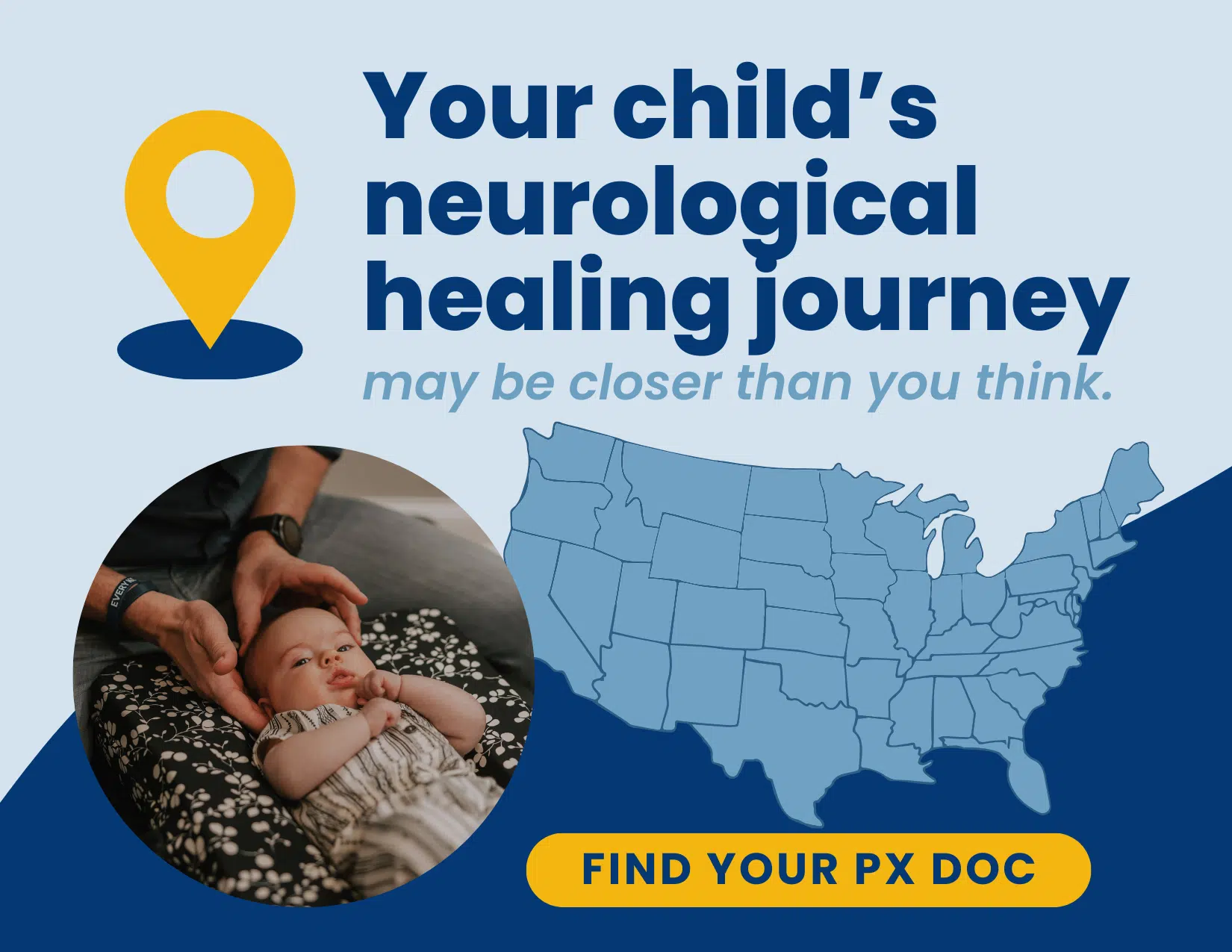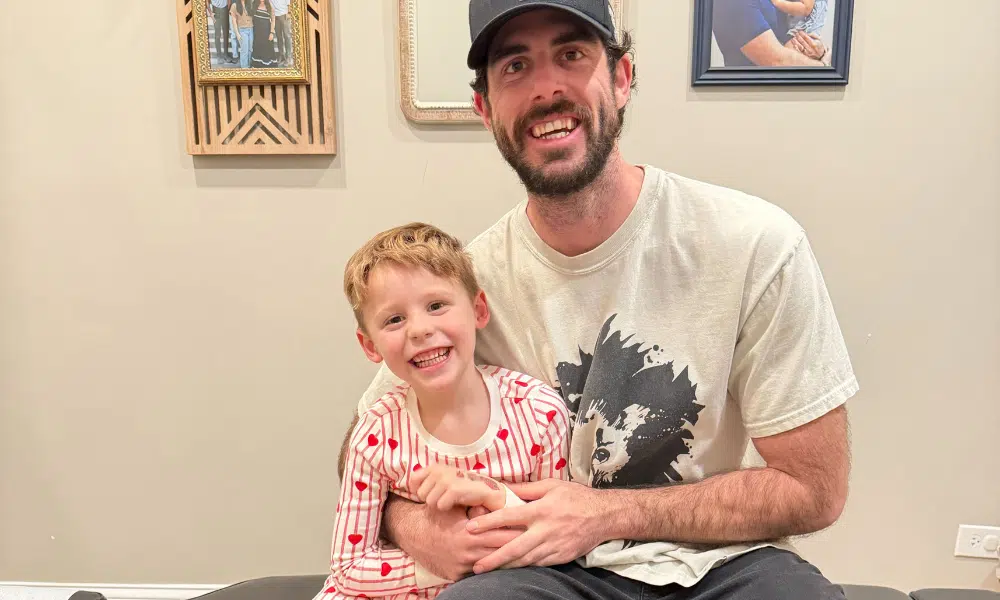Neurological symptoms can be anything from uncomfortable to completely debilitating.
Parents often report to us that their children are suffering from constant sleep disruptions, mood swings, brain fog, body aches, digestive and immune challenges, and so much more. When a child struggles with even just one of these issues, it can make everyday life a struggle. They miss school, social events, hanging out with friends, and much more.
This article will help restore your hope for health and healing for your child by helping you make sense of what’s causing your child’s challenges and, most importantly, what action steps you can take to get them healing without drugs and back to the healthy, vibrant life they deserve!
If your child or teenager is experiencing a variety of functional neurological disorder symptoms, you are probably looking for answers to what is causing their discomfort and pain. While medical professionals typically can’t find a neurological disease or medical condition to explain things, there is still an answer to what may be causing the symptoms: functional neurological disorder.
We’ll walk you through what this condition entails, the symptoms, the causes, and how to care for children with functional neurological disorder.
What Is Functional Neurological Disorder?
Functional neurological disorder stems from problems with the brain and nervous system’s functioning rather than damage from a disease or condition. Strokes, multiple sclerosis, infection, or brain injury cause physical damage to the brain, and that damage or disease is what causes the symptoms. On the other hand, FND doesn’t come from damage but rather from dysfunction in how the brain works.
One way to think about FND is to think about the signals your brain sends to all the parts of your body regularly. If you want to lift a finger, your brain must send signals through your nervous system to make that finger move. The same goes for anything your body does—even the functions you don’t consciously control, like digesting food. Even within your brain itself, it sends signals to all the different lobes that control things like memory and emotional regulation.
For most people, your brain can send and receive signals without any problems. Sometimes people have signal interruptions in other parts of their bodies. But for someone with FND, their brain doesn’t send or receive the signals in their brain correctly all the time. Somehow, these signal channels aren’t functioning properly or receiving enough signals to work smoothly. When that happens, someone with FND will experience symptoms.
Because functional neurological disorder is rooted in the function of the brain rather than damage, some people wonder if the symptoms are real or just psychological. While Freud considered it psychological, doctors today know that the symptoms are real and can drastically affect someone’s life. Others think that people with FND are in control of their symptoms and could just “stop” if they wanted to. This belief is also untrue. Functional neurological disorder is an actual condition with very real symptoms and effects that someone suffering from it can’t control or turn off. Instead, those with FND should receive proper medical care.
Signs and Symptoms of functional Neurological Disorder (FND)
There can be a wide variety of symptoms of FND, and people can experience only a few of them or extensive amounts. FND is different for everyone. Some people’s symptoms are short-lived, but some people’s symptoms may last for years. With such variety in symptoms and duration, the first way a medical professional will diagnose FND is to eliminate other neurological diseases. Once those conditions are ruled out, the symptoms are most likely caused by functional neurological disorder.
However, a trained neurologically-focused pediatric chiropractor will take a different approach. Instead of focusing on the diagnosis, they focus entirely on finding the disorder’s root cause(s). For FND, that means finding those neurological signals and communication disruptions discussed above, also known as subluxation.
Even with such a variety of symptoms, there are still some classifications of FND symptoms. There are two categories: psychogenic nonepileptic seizures (PNES) and functional movement disorder (FMD). The main difference between these two categories is whether or not seizures are present. A symptom that includes seizures will be categorized as PNES functional neurological disorder.
Symptoms of PNES include seizures of any kind. These seizures are considered nonepileptic because they come from brain dysfunction and not improper electrical signaling in the brain. Other symptoms include:
- Temporary loss of concentration or memory
- Confusion
- Loss of consciousness
- Feeling disassociated with surroundings
Without seizures, the FND symptoms are most likely a functional movement disorder. These symptoms primarily affect the body and don’t include seizures.
- Leg or arm weakness
- Leg or arm paralysis
- Tremors
- Twitching or jerking of muscle groups
- Spasms
- Muscle stiffness
- Balance or walking problems
- Numbness or tingling
- Loss of vision or double vision
- Speech problems, like slurred speech
Someone with FND can experience only a few of these symptoms; you don’t have to have every symptom to benefit from care for FND. In fact, you may only have one symptom. Even showing one symptom can be a sign of FND, though.
What Causes FND
The short answer is that no one thing or contributing factor is known to cause functional neurological disorder. There are a variety of factors that can affect FND, including how often symptoms occur and how long symptoms last.
Historically, many believed FND was a psychological disorder and that stress, traumatic situations, and more caused FND symptoms. That explanation doesn’t explain everything about FND, so it can’t be the cause. High stress and traumatic experiences can make someone more susceptible to FND, but they don’t cause the disorder. Not everyone experiencing high stress will develop FND, and not everyone with FND will experience high-stress situations.
Various factors can affect whether or not a person develops functional neurological disorder. These factors can be physical, structural, social, biological, and/or psychological. That’s why we often refer to the causative factors as a “Perfect Storm” that typically has a multitude of all those factors mixed in.
One thing we know about these Perfect Storm-related neurological challenges is that they have a high incidence of these four things:
- Significant mental and emotional distress during the prenatal period
- Birth trauma & intervention during labor and delivery
- Early childhood stress, medications, motor delays, and developmental challenges
- High levels of mental and emotional stress
Focusing on #4 there helps explain why we’ve seen a significant rise in things like functional neurological disorder and POTS recently. With all of the restrictions, lockdowns, school closures, and mask-wearing we forced upon our kids, their stress and anxiety levels skyrocketed. For those who may have already had some level of stress and tension on their brain and nervous system, the increased burden of stress may have been the final straw that put their autonomic nervous system into sympathetic overdrive and led to FND challenges.
Another term that is very relatable and comparable to complex neurological disorders like FND, POTS, and so forth is something called dysautonomia. Dysautonomia is a term that helps explain how so many symptoms can be coming from one primary issue or cause, dysfunction, and disruption of normal communication between the brain and the body.
Who Does FND Affect?
Functional neurological disorder can technically affect anyone. After all, until there is a clear cause, this disorder could occur in anyone of any age. Seizure-related FND is more likely to occur in women and develop in young adulthood. Children with symptoms of PNES can often recover from them and avoid lifelong symptoms. But in general, functional neurological disorder can affect children and adults, men and women. In general, about 4–12 out of every 10,000 people develop FND, which is expected to rise in the coming years due to the increased stress levels added to kids and families in the past 2 years.
How is Functional Neurological Disorder Diagnosed?
With such variety in symptoms and duration, the first way a medical professional will diagnose FND is to eliminate other neurological diseases. Once those conditions are ruled out, the symptoms are most likely caused by functional neurological disorder.
However, a trained neurologically-focused pediatric chiropractor will take a different approach. Instead of focusing on the diagnosis, they focus entirely on finding the disorder’s root cause(s). For FND, that means finding those neurological signals and communication disruptions discussed above, also known as subluxation.
How to Care for Children with FND
When children develop symptoms of FND, it can be difficult as a parent to know what to do. The goal of the current medical model is to keep symptoms from occurring or returning, and their focus is entirely on treating the symptoms.
However, the approach of a neurologically focused pediatric and family chiropractor is to address the subluxation component and neurological disruptions that are leading to dysautonomia and the multitude of confusing symptoms and life disruptions.
The most common treatments for functional neurological disorder include various approaches. One major approach is through different kinds of therapy. Physical and speech therapy can help with motor and speech symptoms and help keep them under control. Cognitive behavioral therapy or psychotherapy approaches can help change patterns in mood, thought, and behavior in ways that can positively affect FND symptoms. Even relaxation and mindfulness techniques can help by reducing stress and distracting the mind from symptoms and discomfort.
How PX Docs Can Help
Since there’s no definitive medical treatment for FND, traditional medicine is typically a frustrating and not-so-helpful route for most families. Today, many families are beginning to find that the right kind of chiropractic care can really help their children feel a lot more like themselves and drastically improve their quality of life.
Parents continue to report their child responding to chiropractic care with improved sleep, more energy, less tension and anxiousness, more emotional regulation, improved digestion, and more. If medication and other approaches haven’t helped your child or you feel that a different approach would be better for your child, PX Docs are here to help.
The PX Docs directory is designed to help you find pediatric chiropractors near you. Using this tool, you can find a pediatric chiropractor near you that can help your child with functional neurological disorder challenges and the pain and discomfort that come from the condition. With this tool, you can start seeking care for your child’s FND and help them feel better.





